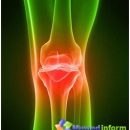What is a psychosomatic disorder? What are the types of psychosomatic disorders? Answers to these questions you will find in the article.
Content
Psychosomatic disorders
Psychosomatic disorders - These are the diverse
manifestations of violations by organs and systems of the body that
arise and exacerbated under the influence of psychogenic (psychological
factors).
Criteria for distinguishing forms of psychosomatic disorders
Can serve: functionality, reversibility, duration
existence, localization, nature of communications with personality features and
the specifics of those psychological factors that determine
Formation of these disorders.
Diagnostic criteria for various forms of psychosomatic disorders:
- Functional nature
- Reversibility
- Duration of existence
- Localization
- Character of communication with personality features
- Features of interconnection with psychological factors
In all cases of psychosomatic disorders in their pathogenesis, we
We see the participation of vegetative dysfunction and expressed in varying degrees
Neurotic symptoms. Manifestations of asthenic syndrome, symptoms
Depression, anxiety and hypochondriac inclusions are ordinary
Satellites of psychosomatic disorders.
Types of psychosomatic disorders
- Psychosomatic reactions
- Functional neurotic bodies
- Somatoform (imperistence of a subject in relation to the physical condition of its body) disorder
- Conversion disorders (mental disorder that includes the appearance of one or
several somatic symptoms imitating physical illness and
presumably serving to reduce anxiety)
- Psychosomatic diseases
 Psychosomatic reactions - These are short-term changes
Psychosomatic reactions - These are short-term changes
Different systems of the organism. These include: Pulse Beating,
Increased blood pressure, change in the frequency and depth of breathing,
Redness or pallor of skin, sudden muscle weakness,
short-term violation of the chair or urination and many other,
As a rule, physiological and short-term disorders arising
After mental experiences. Probably to psychosomatic reactions
It should also include a number of temporary changes recorded with help
biochemical research methods: changing blood sugar, her
coagulation or immune activity and t.D.
Functional neurotic disorders various organs: heart,
stomach, intestines and t.D., represent those functional
disorders that are mainly concentrated in certain
organs, and changes in these organs are clearly functional
character and we cannot detect objective signs of defeat these
organs.
For moomatoform disorders Characteristic: Many permanent
complaints about unpleasant and painful sensations, according to the descriptions of patients
Approaching senthenetics, functional disorders,
observed by several organs, in the absence of objective
Signs of damage. The relationship of complaints
Patient with psychological factors. Allocate various options
Somatoform disorders: somatzed, undifferentiated,
conversion, pain, hypochondriac, dysmertophobic and
Uncomfortable. In the domestic psychiatry moomatoform disorders
refer to psychogenic pathology (including atrhydration) and are associated with
The dynamics of the constitutional - personal features of the patient.
In symptoms of conversion disorders Clearly and symbol
The personal features of the patients and the impact of the psychotrauming
factor a.
In the origin of classical psychosomatic diseases, To
which, as a rule, include: duodenal ulcerative disease
intestine, bronchial asthma, hypertensive disease, neurodermatitis,
Nonspecific polyarthritis, thyrotoxicosis and ulcerative colitis,
Advanced etiological role plays an adverse psychological
factor. He also exacerbates the course of the disease, leads to relapses and
Significantly coloring clinical symptoms of the disease. but,
Objective research methods reveal organic damage
of the tissues of various organs, as a rule, due to long
violation of these organs.









